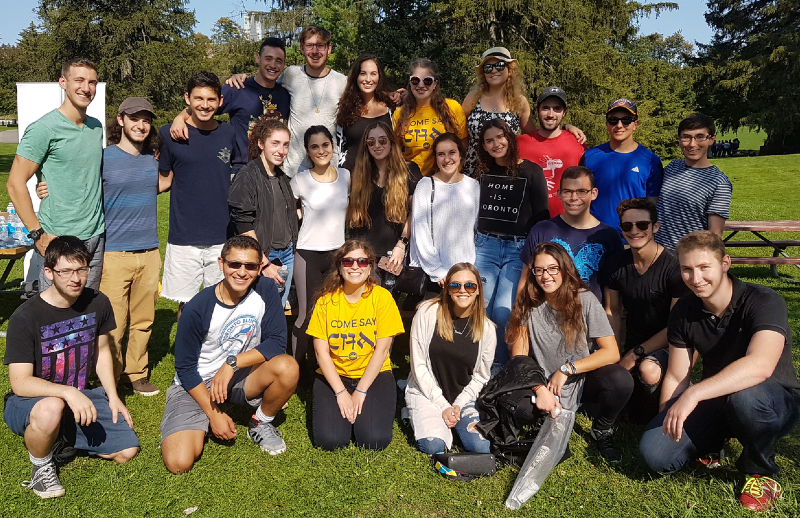Around this time of year, intense deliberations occupy university-bound high school students and their parents. When students have options – because of their academic merit, some measure of family affluence and other factors – they want to find the best fit. Which university has the best program in their chosen field? Which will keep them near, or far from, home? Which will challenge their minds? Or let them coast by with minimal effort? Which promises to set them up well for their future careers? Which will nourish their curiosity? Where are their friends going? Where will they forge important new friendships?
Jewish students frequently bring an additional set of concerns. Where can they find kosher food? Where can they meet other committed Reform Jews? Where can they be assured of daily minyanim? Are there egalitarian services for the High Holidays? Where will they easily continue the religious traditions of their family? Where can they experiment with moving away from them?
Not only students, but their parents also do research about Jewish student life at the universities under consideration. Especially if they are considering enrolling at out of town schools, they are often reassured by the presence of student organizations such as Hillel, and by nearby Jewish communities. And sometimes they look to see whether universities offer courses, and even programs, in Jewish studies.
What we have come to think of today as university-based Jewish studies look very different from their university origins. Centuries ago, when universities, and the professors affiliated with them, were Christian, Jewish and Hebrew studies were a means for Christian theologians and scholars to learn about the origins of their own religion, and to affirm its superiority over Judaism.
Then, as educational opportunities opened up for Jews, particularly in western Europe, Jews in universities began studying their own texts and history, applying the modern methodologies and scientific approaches they learned to Jewish culture and the Jewish past. Part of their motivation was to claim a certain dignity for Jewish studies, to engage with the same tools that one applies to any other nation or culture. While many of these modern Jewish researchers came from traditional backgrounds, they wrote and thought from a proudly secular perspective.
The Jewish studies most familiar to us in North American universities took off in the 1960s and 1970s, part of a growing awareness of the paucity of courses and research reflecting the experiences of minorities. In the last quarter of the 20th century, Jewish studies flourished, part of the same wave that inaugurated women’s studies programs, black studies programs and so forth.
Unlike its early roots in Christian Europe, most of the pioneering professors and students in these programs considered themselves part of the culture they studied. It was a major shift: not outsiders looking in, assured of their cultural dominance and superiority, but insiders, asserting the worth of their own heritage and lived lives. For students who could finally see their own faces and experiences reflected in what they read and discussed in class, these programs were energizing, exciting and affirming.
This new kind of Jewish studies often served to affirm Jewish identity, often in ways that redefined it. Both religious and secular professors and students were drawn to it. Jewish communities, too, liked seeing themselves reflected in the university curriculum.
They liked that Jewish youths, sent off to study away from home, could connect with their heritage, not only through student groups, but through academic study as well. Over time it became clear that not only Jewish students took Jewish studies courses. And some of the leading researchers and teachers in the field are not Jewish. As university administrators came to value diversity and to promote an appreciation of multicultural approaches, students were encouraged- sometimes required – to take courses that reflected cultural differences in society. And the Jewish community began to see in Jewish studies programs not only a means to maintain Jewish identity, but to counter the misconceptions about Jews and Judaism that feed anti-Semitism.
READ: HOROWITZ: THE BENEFITS OF ‘PERFORMING JEWISHNESS’
At its best, contemporary Jewish studies research and courses are a showcase for what universities excel at: looking at something in depth, posing questions, complicating our understanding and expanding knowledge.









